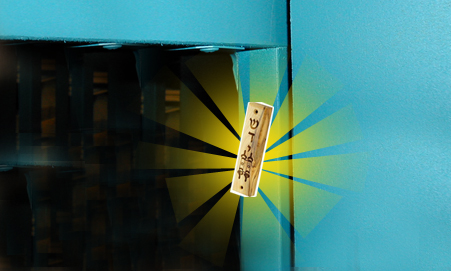About a month ago, a friend told me she wanted to get a mezuzah for her new apartment, to help protect it.
“It doesn’t protect your house,” I told her matter-of-factly. “It’s a mitzvah, something we’re obligated to do as Jews. It identifies your home as a Jewish home, but it doesn’t protect it.”
“What do you mean?” she asked.
“Well, it’s in the Torah, it’s an obligation. It has nothing to do with protecting your home at all. It’s something you’re supposed to do, well, because the Bible says so.”
She thought for a moment and then said, “Well, I don’t want to do it just because I’m supposed to.”
I found her assertion strange but felt I should’ve kept my mouth shut. I didn’t mean to discourage her from doing something she wanted to do, but I didn’t want her to blame Judaism if the apartment flooded and her mezuzah didn’t prevent it from happening.
I’ve been thinking about mezuzahs a lot lately, ever since I moved into a new home with my partner. She describes herself as an atheist Jew. She has no spiritual or religious connection to her Judaism, which puts me, as someone connected to Judaism both religiously and spiritually, in an interesting position. She loves Shabbat dinner because of the food, friends, and wine. But she doesn’t attend synagogue with me, and even though she’s said that she’ll consider going to High Holiday services, in four years it hasn’t happened. When people ask if I converted for her, I remind them of these things. Despite our seemingly different views on Jewish practice, though, we both want one thing—a Jewish home.
Our home is Jewish, of course, because we’re both Jews. But there are other choices that we’ll soon have to make. We’ve begun tallying up the doorposts in our home, calculating the price of placing a mezuzah on each of them. We’ve discussed the ethics of blessing our apartment as a Jewish home, when our landlord, who lives downstairs, isn’t Jewish. We’ve considered the significance behind our desire to hang a mezuzah in the first place—why it’s not just important to me, but why it’s important for her as well. Now that we’ve moved in together, we’re making decisions about our Jewishness together.
In a few weeks, we’re hosting a Chanukat Bayit, a traditional Jewish housewarming ceremony. Our rabbi, an amazing queer woman, is taking the traditional blessing and re-working it to reflect who we are as a couple. We’ve invited all of our friends, Jewish and non-Jews alike. Though the religious aspect may be of less importance to some, it’s the act of doing something Jewish as a couple that I find the most meaningful.
For me, putting up a mezuzah is not really about fulfilling an obligation as much as it is about publicly declaring my Judaism. It doesn’t “protect” my home in the way that a blue and white circular pendant around your neck promises to ward off the Evil Eye, or hanging a piece of red ribbon on your baby’s crib might protect her from Lilith. But there is a wonderful comfort in walking into a home with a mezuzah.
There are places in the world where seeing a mezuzah on every doorpost is common—in Israel, at large Jewish non-profits, or on certain streets in Borough Park—and the homes without them stand out to me. But I have a similar feeling upon finding a mezuzah somewhere unexpected, like on a building in the Financial District or a tie shop in Herald Square. By the end of the month, my apartment will join those places, and I can’t wait.









